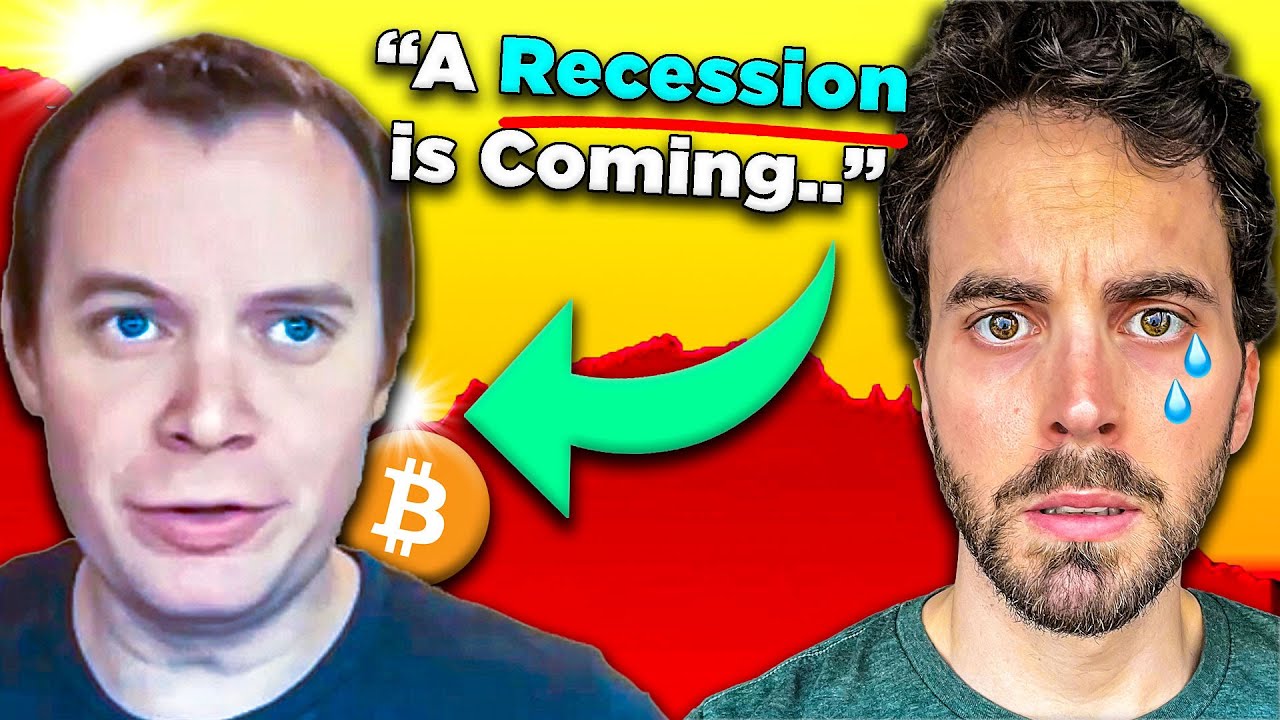Welcome to our blog post discussing the likelihood of a recession in 2024. As a team of quantitative experts specializing in Bitcoin, crypto, and market crash analysis, we aim to provide you with valuable insights and expert opinions on this pertinent topic. In this post, we will delve into various factors and indicators that may determine the chances of a recession occurring in the year 2024. Join us as we explore the possibilities and shed light on this important subject. Let’s dive in!
How Likely is a Recession in 2024? | Quantitative Expert on Bitcoin, Crypto, Market Crash
Introduction
In this article, we are joined by Quant Analyst, Ben Cowen, to discuss the likelihood of a recession in 2024 and its potential impact on the S&P, bitcoin, and other cryptocurrencies. Ben Cowen is a respected expert in the field of quantitative analysis and has valuable insights to share.
Possibility of a Recession in 2024 and Its Impact on the S&P and Bitcoin
The possibility of a recession in 2024 is a topic that has garnered significant attention and speculation in recent months. Many experts and analysts have been closely monitoring economic indicators to predict the likelihood of an economic downturn.
One of the key indicators that are being closely watched is the yield curve, which measures the difference between long-term and short-term interest rates on government bonds. The treasury yield curve suggests some weakening in the economy, as it is currently showing a bear steepener, indicating that the short end of the yield curve is going up.
Historically, an inverted yield curve, where short-term interest rates are higher than long-term rates, has often preceded a recession. This is because it signifies that investors have lost confidence in the near-term outlook of the economy. However, it is essential to note that the yield curve is just one of many indicators, and it is not foolproof in predicting economic downturns.
Ben Cowen emphasizes the importance of monitoring the spread between the 3-month and 10-year Treasury yields. Historically, a negative spread or an inversion between these two rates has been a reliable indicator of an impending recession.
Additionally, Cowen highlights that the reaction function of the Federal Reserve during periods of high inflation tends to be more hawkish. If the inflation rate increases significantly, the Fed might respond by raising interest rates to curb inflation. This reaction can potentially contribute to an economic slowdown or even a recession.
The Impact on Bitcoin and Cryptocurrencies
With the rise of cryptocurrency as a distinct asset class, the question arises: how will a potential recession in 2024 impact cryptocurrencies like bitcoin and altcoins?
While there is no definitive answer, historical data and market trends can provide some insights. During economic downturns, traditional investment assets like stocks and bonds tend to experience significant volatility and losses. In contrast, bitcoin has demonstrated its unique properties as a store of value and a potential hedge against inflation.
During the last few recessions, the stock market usually hit its bottom shortly after the Federal Reserve started cutting interest rates. This indicates that central bank intervention and policy decisions can play a significant role in stabilizing the market.
However, the cryptocurrency market is relatively new and highly volatile. Therefore, it is crucial for investors to do their own research, assess the market conditions, and make informed investment decisions. Cryptocurrencies can experience extreme price fluctuations, and their performance during a recession cannot be guaranteed.
FAQs After The Conclusion
1. Should I invest in bitcoin and altcoins during a recession?
It is essential to consider your risk tolerance, investment goals, and portfolio diversification strategy before investing in cryptocurrencies. While some investors see bitcoin as a potential hedge against inflation and a store of value during economic downturns, others remain cautious due to its volatility.
2. Will a recession have a significant impact on the S&P and other traditional investments?
Historically, recessions have had a substantial impact on the S&P and other traditional investments. During economic downturns, stock markets tend to experience increased volatility and downward pressure. However, it is essential to note that past performance is not indicative of future results.
3. How can I assess the likelihood of a recession?
Monitoring economic indicators such as the yield curve, unemployment rates, GDP growth, and consumer confidence can provide insights into the likelihood of a recession. It is also valuable to follow the analysis and insights of financial experts and analysts.
4. Is it possible to predict the exact timing of a recession?
Predicting the precise timing of a recession is extremely challenging, if not impossible. Economic conditions are influenced by numerous factors and can change rapidly. It is more important to focus on understanding the underlying trends and indicators that could indicate an economic downturn.
5. How can I protect my investments during a recession?
During a recession, diversification, risk management, and having a well-thought-out investment strategy are crucial. Allocating your investments across different asset classes and considering alternative investments like gold or cash can help mitigate potential losses.
In conclusion, the likelihood of a recession in 2024 remains uncertain, and its impact on the S&P, bitcoin, and other cryptocurrencies is challenging to predict. Monitoring economic indicators and staying informed about market trends can provide valuable insights, but ultimately, investors should do their own research and make informed decisions tailored to their individual investment goals and risk tolerance.




